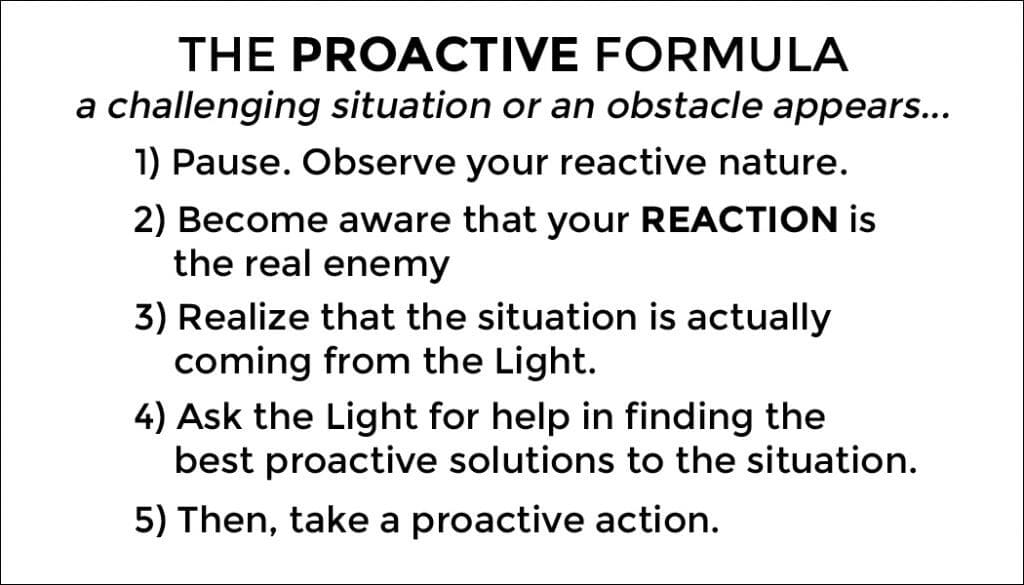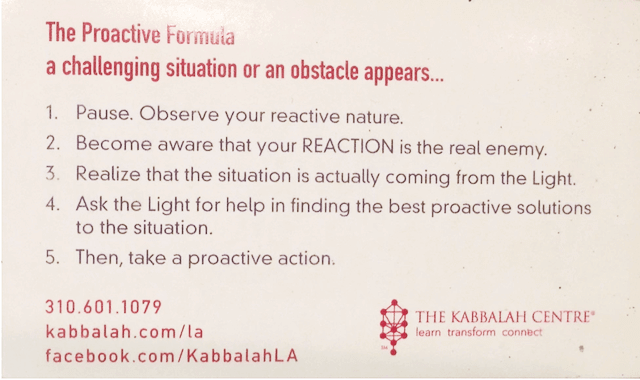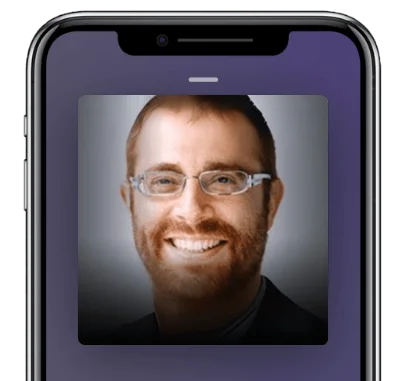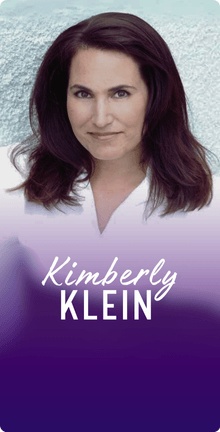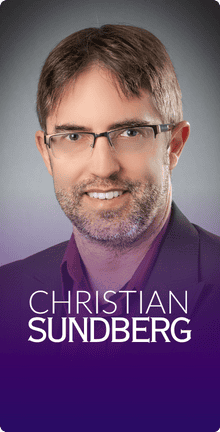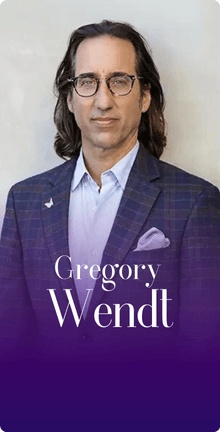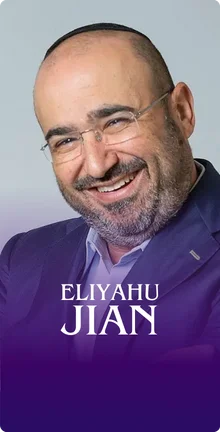In this Episode
- [02:54]Yehuda starts by explaining, in simple terms, what the 99% and the 1% mean in terms of the kabbalah.
- [05:10]We learn more about the 99% and the 1% through an example that Yehuda provides about this podcast episode. Stephan then explains why the internal aspect is far more important than the external aspect.
- [07:07]Yehuda shares a story about an experience with his own teacher that reveals the importance of intention. He then clarifies that we can’t live in a reality purely driven by intentions.
- [08:51]Stephan brings up the kabbalah concept of the vessel. Yehuda then explores this concept, offering an analogy to explain what the vessel represents.
- [12:45]Yehuda talks about the big-picture point of life from a kabbalistic standpoint, which, in simple terms, is achieving complete alignment with our purpose.
- [15:34]Stephan talks about an exercise that Yehuda had him do in class that involved calling a loved one and asking them to offer one suggestion on how to improve oneself (and then seriously thinking and acting on the answer).
- [17:48]We learn about the proactive formula and how to use it when we’re in a reactive state of mind. The first step, Yehuda explains, is to pause.
- [21:14]Yehuda digs deeply into the second step of the proactive formula, which involves realizing that there is no external enemy, and the only enemy is your own reaction to the situation.
- [24:14]Yehuda talks about “the opponent” as a kabbalistic concept, illustrating the game of life by talking about the game of tennis.
- [29:17]Step number three is when we realize that the situation that seemed to be so challenging is actually coming from the light and is an opportunity for us to grow.
- [30:08]Yehuda describes step four in the proactive formula.
- [32:08]We hear a powerful story from Yehuda regarding a butcher who received a message from his father through a dream.
- [36:18]Stephan brings us back to the example of giving a puzzle to a child. He and Yehuda then talk about the Bread of Shame and about the importance of putting in effort rather than simply receiving things.
- [39:44]Yehuda explains the kabbalistic view of what occurs when someone receives lots of energy without having worked for it.
- [42:54]Stephan talks about seeing money as simply energy, and the need for respecting that energy. Yehuda then compares money to breathing.
- [46:24]Yehuda brings up an example to help listeners understand how energy works.
- [48:39]Stephan explains why giving money to a homeless person isn’t tithing. Yehuda points out that this doesn’t mean it isn’t the right thing to do, but agrees that it’s different than tithing. They then discuss proactive versus reactive sharing.
- [52:17]It’s easier for Stephan to donate time than money, but Yehuda explains that it’s the other way around for some people.
- [53:04]Stephan shares one other idea about money that he learned from Yehuda, which is about respecting money.
- [56:53]Yehuda shares some ways to get in touch with him and the Kabbalah Centre.
I’m so excited to be here today with Yehuda Ashkenazi, my Kabbalah teacher. I’m taking Kabbalah classes and it’s been such a profound experience for me. I’ve actually taken Kabbalah 1, 2, and 3 and then repeated 1, 2, and now, Kabbalah 3 will be my next one to do again. That’s 10 week courses each. Yehuda is a long time Kabbalah teacher and has been studying Kabbalah himself since when?
Since ‘99.
1999, many, many years. Originally from Israel?
Yes. I was born in Israel.
And then in the States for how long?
I moved to the United States 2004, first to New York then to LA, back to New York, to Miami, Back to LA.
Wow, that’s a lot of moving around. You changed a lot of lives. Let’s dig into some of the things I’ve learned from you and some of the insights in Kabbalah. I like to think of Kabbalah as ancient self-help because it really is for anybody. You don’t have to be Jewish. You don’t have to be any particular religion.
That’s right.
You can just be spiritual and get so much benefit out of it. Let’s talk about some of the concepts. Maybe let’s start with the 99% and the 1%. This was a profound insight for me. Maybe you could explain what this means.
In simple terms, according to the wisdom, this world, the universe, is in its totality, and in a more particular way of looking at the individuals, we’re all made out of two parts, we all have two parts. In everything you look around, there are two parts. There’s the internal aspect and there’s the external aspect. There’s what you see. There is the aspect of what the five senses of our mind can comprehend. Everything that is related to this physical way of interacting with life would be called in Kabbalah the 1% reality. There is a world that is beyond this physicality. The inside, the internal, the energy, that through the five senses, through our eyes and just the logical, rational mind, a person cannot truly penetrate to see the inside of that individual. 99% represents that aspect. In Kabbalah, we teach that elevating ourselves as a spiritual human being is not about ignoring the reality of the 1% which is the physicality but it is finding a way to access the invisible level of this life, the energy behind things, the energy behind people, the energy behind our desires, and to be able to eventually connect the 1% and the 99% as one whole.
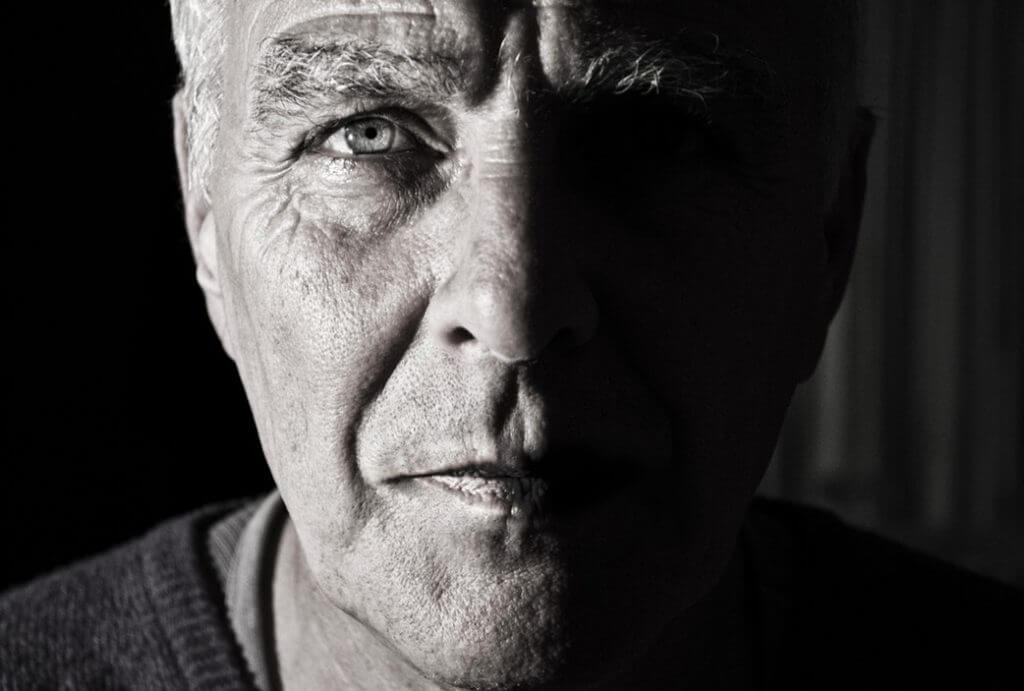
You have the 1% of the physical reality of you have to be at work on time and somebody was really mean to you and I don’t know, in some human interaction but then there’s the spiritual 99%, which most of the reality that we don’t see or think about. That is about how are we being in this world in a spiritual sense.
Right. I want to give you an example.
Okay.
You asked to have me in the interview. It’s my pleasure of being here.
Thank you for doing it.
You have to take care of all the physical aspects of this one hour of us being together, bringing all the equipment, the microphone. You had to drive here. In this case, we’re doing it face to face. There’s all of the physical aspect of this one hour that you needed to take care of. You’ve done it perfectly. When we speak about the 99%, we speak about the invisible aspect of what’s going on here, which would begin with your intention, will continue with your desires, your goals, and what do you really want to achieve through that. When you tap into the 99%, you realize that life is beyond what does it take in order to make things happen and you start to deal more with the intention behind. You’ve learned in many of the classes that more important than what you do is where you’re coming from. It’s your intention behind.
Yeah.
The appearance will be the 1% and what is more internal and concealed will be 99%.
Everything in this world, there is the energy inside — the intelligence, the consciousness — and there is the way that things look in the physical aspects of them. The appearance will be the 1% and what is more internal and concealed will be 99%.
That’s the more important aspect because if you are only living on the 1% level and thinking about getting your own human needs met and being comfortable and everything, and you’re not willing to go outside your comfort zone and grow and be more aware, then you’re missing the whole point.
I can share with you: one day I was sitting with my teacher. Rav Berg, together with Karen Berg who are the founders of the Kabbalah Center, as we know it today. The Rav comes from a lineage of Kabbalists. One day, I was sitting with my teacher in his office and he pointed over a picture that he had in his office. He mentioned that this is a picture he received as a gift. He mentioned that what for him makes this picture so special is not the painter, it’s not the frame and if it would be something that he would see outside in a store or gallery, he would never buy it. But what’s so special about this gift was the intention that this individual brought this gift to my teacher, the intention, and the love that he put in it.
One thing I have learned recently is to be intentional in everything that you do. When you go to a family reunion, you would have an intention for that. You don’t just show up. You’ll reveal more light. You’ll have more impact and you get more out of it.
On the other end, we cannot live in a reality that it’s just driving by intentions without taking steps. The 1% physical reality is here. It’s an opportunity for us to manifest the highest and purest levels of intentions. Eventually, it is about connecting and combining the 1% with 99%.
There’s this concept in Kabbalah of the vessel and then the light. The size of our vessel depends on who we are and how we are in the world and we can increase the size of the vessel and then bring in more light. Let’s talk about what is light and what is the vessel and how do we expand our vessel so that we can take in more light and reveal more light for others.
As human beings, we have that nature to do whatever we can in order to receive the level of fulfillment.
If you have a cup of water, which is empty, the cup is a vessel. When you fill it up with water, the water will become the fulfillment. You have the cup and the water. The cup will be the vessel. The water will be fulfillment. When we speak about the light, this is the name that’s being used in Kabbalah, in the wisdom of Kabbalah for the force of fulfillment in this life. We’re all driven by desires. In the core of all desires, we want to find more fulfillment in life. It doesn’t matter where you’re coming from, your background, your religion, your beliefs. As human beings, we have that nature to do whatever we can in order to receive the level of fulfillment. When we speak about the light, we speak about the force of fulfillment. When we speak about the vessel, we speak about desire. The essence of a vessel, a spiritual vessel is the desire to receive.
Desire isn’t just necessarily I desire something for my own hedonistic pleasure but I desire something maybe to make the world a better place.
This is where we get into defining different types of a vessel. Because one individual in this world might have a vessel which is currently, only desiring physical fulfillment. In order to eventually fulfill our destiny in this world, because in Kabbalah, like in any other spiritual teachings, the idea is to realize that we are not just physical human beings, we’re living a soul journey in this world that seeks and desires to receive, eventually, spiritual fulfillment. This individual might be in a phase of his spiritual development, where all he has been looking for is to make just more money, to buy a new car or a new house, or to have a different status. It doesn’t make the person good or bad. It’s just a phase in the development of the spiritual vessel. Eventually, the individual might work with this frame of desire and he might achieve many things but because of what his soul is looking for in this life. This individual will always feel that there is a missing link in his life. The next phase for this vessel is now a phase of awakening that will drive this individual to look for something that is more than just physicality.
With these different types of desires or levels of desire, you can have different levels of impact on your time here on earth. There’s a point for us. There’s a purpose for us to be here. Is it to change the world? Is it to save other’s souls? Is it for us to be our best selves? I know the concept of Tikkun. Maybe you could explain that and what the purpose of life is from a Kabbalistic perspective.
If we talk about the big picture of the purpose of life which is obviously more than for two minutes answer.
It’s a big question.
But if we would summarize and conclude it in a short way of explaining it, the purpose of life according to Kabbalah is achieving complete alignment with our sole purpose, with the light of the creator. This picks a lifetime and many times even many lifetimes, to achieve the unique transformation that our soul came to complete in this world. When we speak about the concept you mentioned, Tikkun, which is a Kabbalistic term. It’s a word in Hebrew for the correction, repair, or correction of our soul. There are two aspects that also came to complete in this life. One is connected with tapping into the untapped energy of that existence side of us. There are lots of hidden powers inside of you that some of them you found, or you tapped into, or you revealed in the last five years.10 years ago, 15 years ago, if I would have the same conversation with you, you would explain life in a whole different level.
That’s very true. I’ve grown a lot.
In this growth, it’s the way that you’re looking at yourself, the way that you’re looking at others, and very unique transformations that you went through. Not because somebody told you to do so. There were revelations internally drawn of you into those places.
And desire.
The second part of the concept of correction is transforming different negative traits inside of me.
And desire. One aspect of the purpose or the completion of our soul in this life is connected with the process of awakening your connection with greater powers that exist within you. The second part of the concept of correction is transforming different negative traits inside of me. If I have, for instance, anger issues. I might be a beautiful individual and human being and cares for people, but it might be that it takes just a little bit for me to get into a place of anger. Obviously, if this is an issue that they have, it will affect many aspects of my life in a negative way. The other aspect of the Tikkun will be very unique transformations from the negative traits that they have eventually to be able to change it, to transform them into positive.
I remember a really profound exercise you had us do in a class where we called a loved one and asked them, if we could change something about ourselves, if there is something problematic about us, what would it be and to really reflect on that, really take it in without reactivity and judgment and defensiveness. That night, I called my mother and she was really surprised by that question. I asked her, “What’s one thing about me that you recommend I change?” A character flaw or something that is hurtful. She gave me that feedback and that was a powerful conversation. That happened pretty shortly before she died, within a few months. We didn’t know that she was going to pass so I’m glad I had that conversation with her while I could. I recommend that exercise. It’s really powerful.
As far as being more proactive and less reactive in your nature, whether it’s anger, or defensiveness, or pride, or judgment, you gave us a little card to put in our wallets and I actually have mine. I carry it with me all the time. I’ve memorized what’s on it. It’s called the proactive formula but it was really amazing and helpful for me. Step one is to pause and that’s the hardest part when you’re in a reactive mode so maybe you could walk us through the proactive formula and how we can use it when it’s hard because it’s easy to use it when it’s easy. It’s hard when you’re in the middle of reactivity and you really want to say something hurtful or defend yourself. Let’s talk about the proactive formula.
The proactive formula is one of the most powerful in practical tools that we teach and we use it in Kabbalah. The only idea of this is to give us a tool to be able to go through a process of eventually finding the ability to transform the reactive energy inside of us and to develop more the proactive muscle in us. If anyone would think about one example in life, one individual in life, one situation in life, that is triggering, the negative reaction that we might have, it can be an emotional level. It can be a thought level. It might be even with words or actions that we do that are so reactive and robotic just because something happened that we didn’t like. In the base of the proactive formula, there is the understanding that in order to elevate our life to a high place, more positive place, I need to realize that it’s not about changing situations and people in my life but it is about shifting my attitude and shifting the way I react to those situations. If I will be able to shift the way I react to different things that happen in my life, it will be the seed level. It will be the beginning of the shift that eventually this situation or this individual or this aspect of the movie of my life, eventually will follow my change. Whenever there is that moment of the situation of something triggering your reaction, the framework is first of all you need to be aware that you’re operating from a reactive place. Step number one as you mentioned is a pause. But in order for me to pause, I need to realize, I need to recognize I’m operating from a reactive place. As you study Kabbalah and we’re emphasizing it a lot in the teachings, you’re able to recognize more and more moments. The step number one in the proactive formula, it is to pause whatever you do. Just don’t do it. Normally, you would say…
The automatic thing.
The automatic, the robotic.
The thing that happens when you get triggered.
It’s not about being right or wrong. It’s about my ability to transform the energy now and it begins inside of me.
Many times I’m telling my students it’s the predictable you. Because people know you, they know exactly how you’re going to react to certain situations. It’s kind of going into a journey of surprising people in our lives. The same way you surprise your mother. She wouldn’t expect it. Proactively, you would call her and ask her. But that moment when something happened that triggers our reactivity, the first step after you’ve been aware that you’re operating from a robotic place, automatic reaction, realizing it’s not about being right or wrong. It’s about my ability to transform the energy now and it begins inside of me. Step number one, I need to pause. Step number two, I need now to raise my awareness and my consciousness to a spiritual place and realizing that what seemed to be for me the enemy, this individual who criticized me, this colleague who didn’t follow up on what they promised or their responsibilities, whatever went wrong or seem to be wrong, it is not the issue. It is not the enemy that I’m going to fight and to correct. There is only one enemy. This you learn in Kabbalah. This you learn in Buddhism. This you learn in any spiritual teachings. The only enemy is our own ego. That ego is manifesting in that moment in that simple way of me being reactive. In step number two, I need to realize there’s no external enemy. The problem is not the individual or the situation. But the enemy is my reaction to the situation.
So even if it’s so unfair and they’re so out of line, the odds are stacked against you. It’s really a travesty of justice. Whatever the 1% situation is, there is a 99% level that we need to tap into our awareness and see that this is for our benefit and that this is a situation that is going to allow us to grow if we handle it in a better way.
Amazing. What seemed to be so challenging and difficult when you start to go through this process, you start to realize how within those moments that the greatest opportunities for your expansion as a human being, as an individual. You start to realize that the world is not fighting against you. Anything that seemed to be so challenging, that makes us so being so reactive, after all, why are we so reactive. There’s always a fear behind it. We’re afraid of something. But the moment you realize it is not about you fighting the world, it’s about you tapping into the opportunity of the moment. And then you realize in step number two that the enemy is not the situation or the individual, but it’s the way that you react to the situation.
There’s a term in Kabbalah called the opponent, which is a way of describing this internal force where our own ego and our robotic consciousness. The opponent, also known as satan.
That’s right.
The opponent. Can you talk a little bit about how you describe the opponent?
You spoke about it beautifully and clearly. The opponent in what we call the game of life, like in any game, if you play, for instance, tennis, in order to really play tennis and if you want to become better, you have to have an opponent. The opponent is not this evil individual. The opponent is this individual that eventually will be the reason, the opportunity for you to become even greater and better. If you look at your opponent in the game of tennis as the bad guy, you’ll have a whole different attitude for the game then realizing you actually need the opponent in order to grow. If you got into the field and you realize in this phase of your life that after playing for 20 years, let’s say, tennis, and you’re already in this certain level, you come in and your opponent being presented in front of you and this is five years old who never played tennis before, if you think about the game of tennis, if you’re playing the game, what is your goal in the game?
To become better and better.
Right. For most people, when they’re getting into the field, it’s about winning.
Right.
It’s not about just winning of this specific game to make me feel better, it’s about using this game in order to elevate myself and to become better.
For you, because you have a more spiritual perspective, it’s not about just winning of this specific game to make me feel better, it’s about using this game in order to elevate myself and to become better. It’s about the long term.
Right. So you actually want a more skilled opponent so that we can grow.
Exactly because somebody that plays the game just about winning, now we don’t really speak about tennis, we talk about life, if it’s just about winning and getting what you want, you know what, play against this five years old who never played and then I’ll ask you a different question, “What is the chance you’re going to win the game?”
100%.
100%. Are you going to feel like a winner after winning the game to a five-year-old?
No.
Not at all. Winning the game is giving you the feeling of a winner so you might be fulfilled.
Right.
You look at the kid that likes assembling puzzle pictures. What is the goal in assembling the puzzle picture? What is the goal in the puzzle?
To exercise your mind, have fun, accomplish something, and engage in an interesting activity.
Beautiful. This is from a spiritual perspective. From the 1% perspective, what’s the goal in the person?
To win as quickly as possible.
To put the pieces together, to find all the pieces, to put them together. This is the sense of winning.
The accomplishment.
If you would buy a puzzle picture to a kid, to your kid, or to your friend’s kid, and you would think, “This is 100 pieces of puzzle. It would be a headache for them. I love this kid so much so I will assemble it for them and I would frame it for them. I would give it to them as a gift.” If you would give it ready for the kid, what do you think the kid would feel?
If it’s too easy, they’ll feel like you’re wasting their time. If it’s too hard, they’ll feel frustrated. It’s a balance to figure out how it is best to serve them.
Beautiful. This is between us and the kid. In Kabbalah and in spirituality, you learn that the universe would never give you a challenge, a puzzle to assemble that is beyond your capabilities. Any challenge that we face in our life is there to help us to elevate and to grow.
Yes.
Never to put us in a place of frustration, never to put us in a place of blame and victim mentality, and to feel the world is going against me. Again, tapping into this spiritual way of looking at life which is a process, it’s a gradual process, and bringing it back into the proactive formula and realizing that the opponent in the game of life, it’s not external. There’s only one opponent which is an internal opponent that manifests itself as the reactive, robotic way that I’m handling my life.
Powerful. With that new awareness that the opponent is not the person who’s “being unreasonable” or hurtful, it’s actually internal, then I can change my perspective and see that this is actually an opportunity, this is a gift. Now, I can reveal some light if I choose to.
Step number three is the step when we’re saying that realize that the situation that seems to be so challenging normally, it’s actually coming from the light.
The creator put it in front of us to grow.
Exactly.
Now, we have that realization that the opponent is my reactivity, my ego. This situation, it might seem so unfair from a 1% perspective. I see that, “Oh, this is about me growing and taking this opportunity. It’s a gift. The creator brought this to me. Now, I can choose to elevate and be a better person.”
Asking for help, it’s not about asking externally.
Right. Stephan, number four in the proactive formula is that step that is actually linking us into a whole different dimension of looking at reality. Step number four, like we say, is a step that I need to ask for help. Asking for help, it’s not about asking externally. It’s checking what normally do you wish the moment of a challenge. I can tell you that most of us wish for the challenge to disappear. We don’t like challenges in our lives. What normally we wish is for the challenge to go away. Instead, at number four, you ask for something else. You get yourself to ask and to wish not for the challenge to disappear. You wish to have now to awaken a new perspective inside of you about the situation after you went through all those steps. To be able to see what I really need to do in order to use this situation as an opportunity for my growth.
It’s not about solving different problems. It’s about growing, elevating, and evolving our consciousness.
Exactly.
It’s amazing. It’s an amazing formula. I’ve used it a lot. There are plenty of time when I wish I would’ve used it but it’s a process.
As you said, exactly. Transformation, we have a lifetime to work with it.
A story that you told, it was really powerful for me, this reactivity to robotic consciousness that we fall into, especially when we let our guard down, there was a butcher. You described the story. He was given a message. Maybe you could share that. In the sleep, he was given a message by his father.
For me, it’s a very powerful story. This is the reason I’m showing it with the class, with my students. It is about a butcher who one night dreamed, the night he slept, he received a message through a dream from his father and his father told him that on Friday, there will be an old lady that will come and ask for his help. He should not miss the opportunity to help this individual. He’s carrying this kind of spiritual death with this individual for a few lifetimes and this is an opportunity really to reveal this unique light.
And clear that karmic death.
Exactly. As he woke up, he was very excited because the message was so clear. It was Wednesday. He was waiting for Friday to come. Friday came but this lady never came. And then he realized, “You know, my father never told me which Friday.” He was waiting for the following Friday, she never came, following Friday, even months, years, she never came and he completely forgot about the dream and about the message. After 40 years, it’s Friday evening. He’s preparing itself for the spiritual connections that normally he’s doing on Friday night.
It’s not about solving different problems. It’s about growing, elevating, and evolving our consciousness. Share on XThe Shabbat.
The Shabbat connection. There was an old lady who is coming and asking him if you can help. He said, “All the village knows that I work till Friday morning, this time, I’m really sorry, I cannot do it for you.” She left. He went to do his prayers and his meditations and his connections with the energy of the Shabbat and his community. He didn’t even realize that he completely missed the opportunity. He went back home and on Friday night, there is one of the connections we do which is the blessing over the wine. For him, it was a special moment every Friday night because he beholds the cup of the wine and before he’s doing the blessing over it, he’s closing his eyes and he’s meditating. He’s taking himself back into the time of his childhood. He’s trying in his mind to hear the voice of his father. As his father’s voice comes into his mind, also the message came back to his mind. He fainted. Everyone got very nervous. Eventually, they woke him up, and the first thing that he told everyone, “Just take all the food and give it to this lady and her family.” This is what they did. When they came back, they asked him to explain what just happened and then he told them the whole story. How he missed the opportunity because he forgot the message and one specific thing that his soul needed to complete in this lifetime. But with this message that his father gave him through the blessing that he did over the wine, he remembered. Eventually, he left the world during the night.
That same night, he passed?
Yes. The Kabbalist explained that in this night he wasn’t supposed to leave the world but there will be two options for him to leave the world. Completing what he needed to complete or leaving the world not completing what he needed to do.
This is part of his Tikkun, part of his interaction?
Exactly.
He almost missed it.
Almost missed it.
Powerful. I love that story. I know there are so many times where I have almost missed it. I’m now much more aware of it. I know that I’ve missed that opportunity in the past but now, I have this new awareness. I love that story. Another concept I want to go to that I think you kind of alluded to when we’re going through the proactive formula and you’re talking about a kid, a puzzle, and if it’s too easy versus too hard. It’s not the best gift for the child. There’s this thing called the bread of shame or in Hebrew, it’s called…
Okay. I don’t know that word in Hebrew but the bread of shame which is about making it too easy for your kids because we want to provide for all their needs and everything and then we make it hard for them to grow.
Right. There is a concept which is known. It says that it’s better to teach an individual how to fish than giving them the fish.
Yes.
When you do or desire things for other people instead of them making the effort, you would basically instead of giving them, you’re taking from them the opportunity to grow.
In life of course, if somebody is in need, in a spiritual level, I won’t be there for them and in a physical level, I won’t be there for them. But there is a level of work that each one of us needs to do and no one can do it for us. When you do or desire things for other people instead of them making the effort, you would basically instead of giving them, you’re taking from them the opportunity to grow. Especially with our kids, especially with people that we love, we really won’t do a lot for them. But sometimes, when you do a lot for somebody and it comes from the right intention and good heart, without realizing, sometimes, it’s weakening their muscles. The concept of the bread of shame is teaching that in order for you to receive fulfillment in life, you need to become the cause of it.
Yes, and earn it.
The earning eventually is what does it take for you to be the cause of that? Of course, you can get assistance. Of course, you can help people. But eventually, it’s about their effort. It’s about your effort to achieve whatever it is that you want. Otherwise, you can receive everything that you wish to receive but if you’re not the cause, if you didn’t earn it, if you didn’t put the effort into it, you can have everything and feel like you have nothing. Nothing will really fulfill you. Fulfillment comes because of that expecting side of each one of us. At the soul level, we want to be the creator of life. Being like the creator.
If I do too much for my child and help get them out of jams, out of problems, if I provide cars and all sorts of desires without them earning it, then I’m depriving them the opportunity to grow spiritually and then that comes with side effects. Like winning the lottery comes with side effects. Most people who win the lottery because they didn’t earn it, they end up losing it all or having some horrible tragedy happen and end up wishing that they had never won the lottery.
Unfortunately. When lots of energy comes into the individual without him being the cause of it and making the effort for it, in a Kabbalistic term, we say there is lots of light but there is no vessel to hold the light. The vessel is not strong enough to hold on to this energy. This is why someone can get so much energy for free, meaning without making so much effort but for most people, they can’t actually handle it so something happened and it disappeared from their lives. The point is really finding the balance because you have kids or you have people that you love or even your communication with the world, you want to do a lot for the world, for your community. Do it for others. It’s not just a feeling of the lack or the needs of others. It is giving them the opportunity to grow. It’s becoming the cause for what they want. If you decide to buy a car for your kid because they need to have a way to commute to school. From a spiritual point of view, there’s no problem for you to get a car for your kid but if all that you’re doing with your interactions with your kids is just giving them what they want and you’re not balancing it by giving them responsibilities, to put them in a position that we require effort from their end, for them to give back, for them to do something that requires a type of an effort, that they will feel that they’re not just receivers in this world, they do something that they can value it themselves, they can look at themselves as the energy, eventually, of fulfillment and happiness comes not because of what we receive in life.
It’s what we share.
Exactly. The moment that you find your unique way of add value and share, this is where you start to ignite the power of your soul. The concept of the bread of shame is anytime that we receive without being the cause or without us making the effort, as long as you do make an effort and you push yourself to become the cause in your life, if you receive something without earning, it can be a gift. It doesn’t make you get bread of shame. It is okay to give to each other.
Fulfillment and happiness comes not because of what we receive in life.
Right.
Not to mention that we gave each other opportunity is also for growth.
The more that we share from this proactive level, instead of reactive, just to get something, the more light we’ll reveal. I love what you described. It’s energy, really. When, let’s say somebody wins the lottery, they’re getting a lot of energy that their vessel can’t handle. That energy is money in that case. Or if you buy a car for your child and they’re used to not having to earn things and they get whatever they want…
Or simply we can see in our generation, it can be 17 years old tapping into becoming a rockstar overnight and become one of the top celebrities in the world. Not the money but fame. It can be fame that comes to one individual that they don’t really have the vessel to handle it.
Let’s take energy in the case of money. I love this analogy. This was a wonderful insight for me. That when you see money as simply energy and in exchange of energy when you’re exchanging money for services or products or whatever, that you need to respect the energy in order to get more. Here I would not respect small amounts of money because I didn’t see the value in it but maybe you could share the quality versus the quantity of that kind of energy at money.
When we speak about the energy within this physical world, money is maybe one of the most tangible ways that energy becomes manifested in this life. When we talk about looking at the energy within the physicality or within the money, I’ll explain it in a very simple way, the same way that we breathe in, you breathe in and then you exhale. You cannot just take in. You have to release some to create circuitry.
Yes.
The circuitry of energy within money was already coded in the Bible. In the Old Testament or the time of Abraham, the Bible presenting the idea of the tithing, the giving of the 10%. The whole idea of the 10%, it is just educating us as human beings to elevate ourselves from a selfish way of living life, to realize there’s a world outside of myself that the heroes will put end to contribute. Like in the physical also in the spiritual, the same like with my talent. When we speak about respecting the energy in spiritual level, it’s just a way to attach the energy of you wanted to talk about the money to attach the energy of the money back into the source. Whatever it is that I receive, I want to create a vessel that will have the ability to create continuity with that energy. Call it money, call it time, call it wisdom, call it anything, it’s all the same, you’re all compartments not just with money. Respecting the energy is respecting that I’m not really on a spiritual level because, in the physical level, I might be, but on the spiritual level, I’m not the owner. I’m not the owner of wisdom.
Or the gifts that you’re given. You might be an amazing singer but you got that
at birth.
Exactly. The same like with money. Just with money, it’s more difficult for us because it
is so tangible.
We think we earned it because we did these things and we got the money but then if we
don’t tithe, as you said, then we’re not letting it pass and do other good things. It’s like a river.
There’s a beautiful example that the Cavalry speaks about. If you know the geographic and the land of Israel, because the main source of the drinking water in Israel is the Sea of Galilee. It’s not a huge lake but it’s big enough to provide water to the whole country. The water in the Sea of Galilee, there are sweet water, obviously, that comes from the mountains. From the Sea of Galilee, there is an exit for the water and then it becomes the Jordan River. If you get into the Jordan River, the water themselves are sweet. The Jordan River ends in the Dead Sea. You see the same source of energy in one place, sweet, live. The other place, it’s called the Dead Sea because there is no living creature in it. It’s very salty but the source is the same source. The Kabbalists explain, not about the physicality, even though there is the physicality in it. What makes the Dead Sea becoming Dead Sea is that there is no exit, it is just a vessel that’s receiving, not contributing in any shape or form. Fulfilling our destiny in this world, soul level is never just about what we manifest and get and receive in life but also came to make a difference as well. With any form of energy that we receive in life, in order to be able to experience it is a blessing and fulfillment, we need to learn in this life how to overcome our selfish needs and to use it in some level in a sharing way.
Fulfilling our destiny in this world, soul level is never just about what we manifest and get and receive in life but also came to make a difference as well.
Because we have this desire for oneself alone that Kabbalists speak of that we need to overcome and be more proactive and share not for our own purposes but in order to reveal life. When you give money to a homeless person, that’s not tithing because that person is going to use it for themselves alone, they’re not going to, probably, do it out to all their friends or start a non-profit and feed other people with it.
It doesn’t mean it’s not the right thing to do.
But it’s different.
When you learn into the different ways of using physical energy as far as sharing, there
are four levels that are being defined. This will be a contribution that they give to this individual, tithing is a different frame, different intention, a different way of using it. But at least you know for us and for our generation, at least focus on the tithing itself. But if each one of us will open their heart a little bit and realize that anything that they receive, in order to create a real blessing out of it, there is a need to manifest some sharing within it just to open up the gate for the flow.
There are two types of sharing, proactive sharing and reactive sharing. Let’s say I give $5 to a homeless person, if I’m doing it reactively then I expect some thank you or expression or appreciation. But if I give it proactively just because that’s who I am and that’s how I want to be in the world then their reaction is of no consequence to my giving.
You realize that this individual is an opportunity the universe is presenting for you. The moment you give, as you say, you don’t have any expectations from the individual to do something or anything back to you in a physical level and not as far as thank you and appreciating what you’ve done to them.
Or even to use it in a particular purpose like they could go on and buy cigarettes with it and that’s okay.
If you already decided to give it.
If you are doing it from a proactive aspect of sharing, then they could react in any way, they could spit in your face or start screaming at you for giving them the money and that’s okay.
Whenever you give, there is one level of elevating your consciousness into the place of not having expectations, it is one thing you speak about. You don’t give that money and that energy, this energy will be used in a negative way. Meaning you can give some money to an individual in the street and might use it to buy a gun.
If you think it’s going to be used through negative then don’t do it.
Giving proactively, it’s not just about not having the expectations, it’s that I want the energy that they give really to a make difference. I want the energy I give to make a difference for long term. Sometimes I do need to give the fish, I do need to give out the feel that I want to give the $5 or the $10 to this individual just to buy some food and to be able to go by the day. But it will be one form of me giving in this world. In the soul level, our soul is here to find the ways that we can really give in the ways that will make a positive impact and difference for the long term.

And in a way that makes us grow the most. For me, it’s easy for me to donate my time, it’s hard for me to donate money.
In some people, the opposite. In some people, it’s easy for them to give money, some people don’t have any issue to write on the check to organization that they’re believing in, it can be kids, it can be a hospital, it can be other people who love art or just to their temple. Some people don’t have any problem to do that, for them time will be an issue. The point is the way of us expanding ourselves. Is it more challenging for me to do further and to give off myself. This is probably also when the key is being concealed for the next phase of my [00:57:44].
I know we’re about out of time but I want to show one other idea about money that was really profound for me that I learned from you, that was respecting money because you’re respecting the energy, the amount of money because it reflects the size of the vessel and not about the quality of energy that’s contained within it. I used to throw pennies into the penny jar or whatever because I didn’t respect it and I didn’t want to have that in my pocket not because I was being generous but just because I saw it as an annoyance instead of respecting that energy in it. The thought of looking at money differently and when you see money on the ground even if it’s a penny or a dime, maybe pick it up because that’s respectful of the energy. It’s a huge shift for me.
I’ve learned it from my teachers, the difference between one penny and a million-dollar is not in the energy, it’s in the vessel. If I realized that the energy within one penny is the same energy, not in quantity but in quality, the same energy as the $1 million, I would look at one penny differently. One penny can make a big difference in some places in the world. We’re living in a society that if you go and you buy some products in the grocery store and it costs $4.99 and you get back the penny, you don’t even pick it up because we look at the things just from the 1% perspective. What do I need with this one penny? But the moment that you start to shift the view and looking at life more from a spiritual perspective, it’s no longer a penny, it’s just a vessel that carries that divine energy. If you’re capable to respect this energy in this little vessel, eventually, we believe that you can build your own life and your own vessel to be able to manifest a greater level of energy.
One thing you said was that if you see the same amount of money differently than you did
10 years ago then you’re probably not respecting the energy in the money. Seeing $100,000 is not as much money and not as important or as powerful now than 10 years ago gives you some insight into the fact that you need to reevaluate how you look at money.
Yes, but from a spiritual level, you can have $100. One individual, the one-dollar will
be enough just for that and for another one, the $100 will be enough for much more than that. You might have the same amount but when you feel that there’s more blessing in what you have, you realize that even the same amount, even smaller level of the amount is capable to accomplish much more. From a spiritual perspective, it’s not really about the amount, you might have the same amount of money but you’ll be able to use this same amount of money for so many more things.
The result, having that bigger view, I think is what matters there. I know we’re out of
time. We’re here at the Kabbalah Center in LA, do you want to share the website address for our listeners?
It’s www.kabbalah.com, this is our own website. We have a Facebook page, the Kabbalah Center Los Angeles. If you live around, you can get all the information for the different activities, classes, and services that we provide.
Thank you so much, Yehuda. This was really amazing. I think we revealed some light and hopefully changed some lives with this episode.
Thank you so much for having me, Stephan.
Thank you, listeners. We’ll catch you on the next episode of Get Yourself Optimized. This is Stephan Spencer, signing off.
